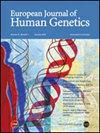Predicting the phenotype of Pompe Disease from features of GAA variants
IF 3.7
2区 生物学
Q2 BIOCHEMISTRY & MOLECULAR BIOLOGY
引用次数: 0
Abstract
As the management of Pompe disease depends on whether an individual has infantile onset Pompe disease (IOPD) or late onset Pompe disease (LOPD), the question of whether the phenotype can be predicted from specific pathogenic variants is becoming increasingly important. We reviewed published cases of Pompe disease in which IOPD versus LOPD and pathogenic GAA variants were assigned for specific individuals. We then compared variant types and locations versus phenotypes. We identified 115 cases, 42 with IOPD and 73 with LOPD. We found that two features of GAA variants can help predict phenotype: (1) presence of a splice variant on at least one allele and (2) location in specific protein domains. These findings help provide prognoses for newborns diagnosed with Pompe disease. Our analysis will also help expecting and prospective parents who pursue genetic testing as they consider therapeutic options that may be beneficial to implement soon after birth.

从GAA变异的特征预测庞贝病的表型。
由于庞贝病的治疗取决于个体是婴儿期发病的庞贝病(IOPD)还是晚发性庞贝病(LOPD),因此是否可以通过特定的致病变异来预测表型的问题变得越来越重要。我们回顾了已发表的庞贝病病例,其中IOPD与LOPD和致病性GAA变异被分配给特定个体。然后,我们比较了变异类型和位置与表型。我们确定了115例,42例为IOPD, 73例为LOPD。我们发现GAA变异的两个特征可以帮助预测表型:(1)在至少一个等位基因上存在剪接变异;(2)在特定蛋白质结构域的位置。这些发现有助于为诊断为庞贝病的新生儿提供预后。我们的分析也将帮助那些寻求基因检测的准父母,因为他们会考虑在孩子出生后尽快实施有益的治疗方案。
本文章由计算机程序翻译,如有差异,请以英文原文为准。
求助全文
约1分钟内获得全文
求助全文
来源期刊

European Journal of Human Genetics
生物-生化与分子生物学
CiteScore
9.90
自引率
5.80%
发文量
216
审稿时长
2 months
期刊介绍:
The European Journal of Human Genetics is the official journal of the European Society of Human Genetics, publishing high-quality, original research papers, short reports and reviews in the rapidly expanding field of human genetics and genomics. It covers molecular, clinical and cytogenetics, interfacing between advanced biomedical research and the clinician, and bridging the great diversity of facilities, resources and viewpoints in the genetics community.
Key areas include:
-Monogenic and multifactorial disorders
-Development and malformation
-Hereditary cancer
-Medical Genomics
-Gene mapping and functional studies
-Genotype-phenotype correlations
-Genetic variation and genome diversity
-Statistical and computational genetics
-Bioinformatics
-Advances in diagnostics
-Therapy and prevention
-Animal models
-Genetic services
-Community genetics
 求助内容:
求助内容: 应助结果提醒方式:
应助结果提醒方式:


